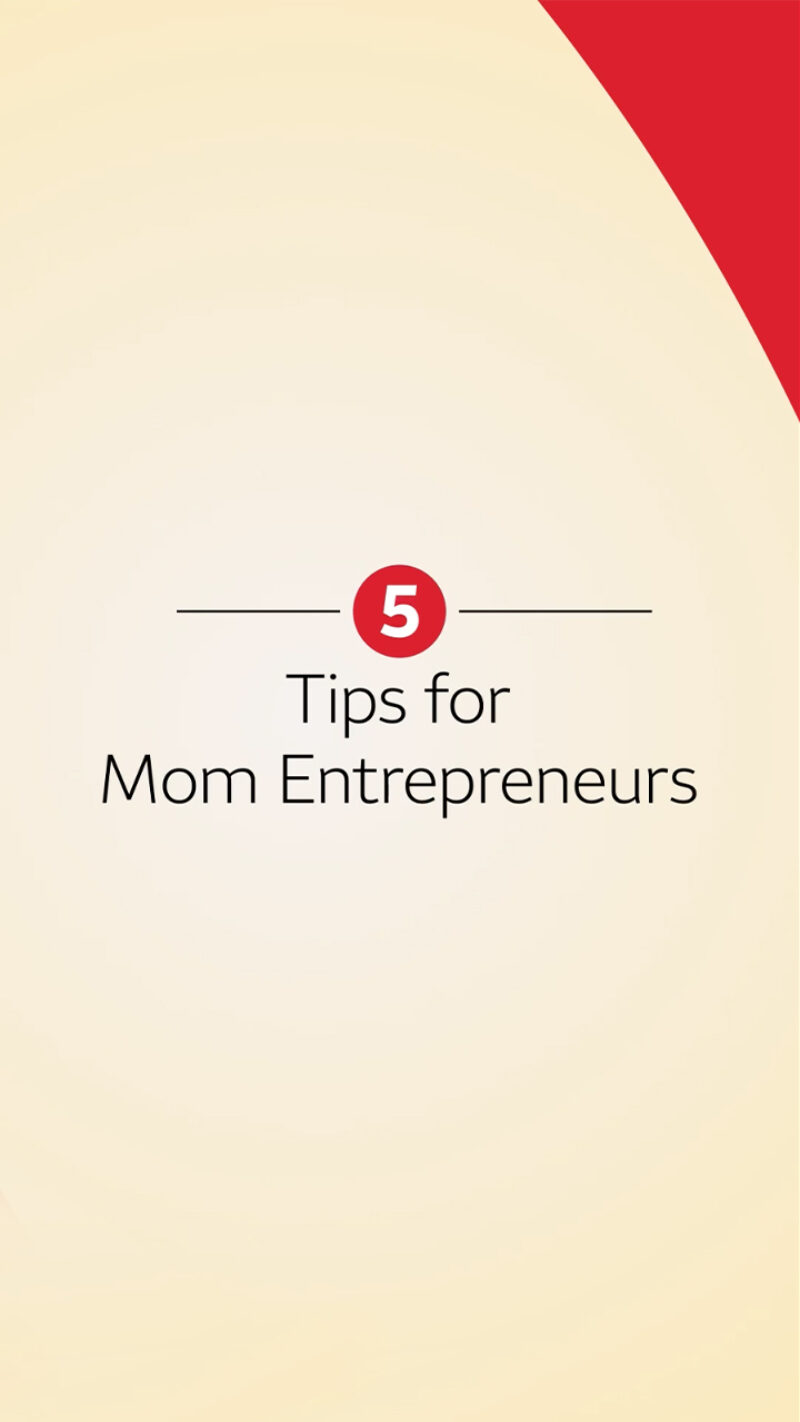5 life-balancing tips from mompreneurs
Many mothers who lost jobs or quit during the pandemic took the opportunity to turn their dream of running their own business into a reality. By 2023, these mom entrepreneurs were hitting their stride, according to a new study.

Key takeaways
- Focus on balancing work and family priorities.
- Be mindful of your workplace environment.
- Get your support system in place.
- Surround yourself with people who understand you and your vision.
- Continue to refine your purpose and plan.

The growth of women-owned businesses outpaced men’s for firms, employment, and revenue during the pandemic and post-pandemic in 2023, according to The 2024 Impact of Women-Owned Businesses study. They added 1.4 million jobs and $579.6 billion to the economy between 2019 and 2023.
Entrepreneurship is not without its challenges. This is true for all small business owners, but especially when it comes to combining motherhood with business ownership. According to a study focusing on the economic role of entrepreneur mothers (PDF), self-employed women report spending more time on child care activities and less time in paid work compared not only to self-employed men, but also to employed women and men.
So, how does a mom capitalize on her drive for success while prioritizing work-life balance? Nascent and experienced business owners came together from across the country at the Nasdaq Entrepreneurial Center in San Francisco to participate in a Milestone Circles event to share strategies and motivation. Here is their advice:
1. Find your balance
“The biggest challenges I face as an entrepreneur and a mom is trying to find that balance,” said Tre’elle Tolbert, owner of Tag It Brand It, a digital branding company in Norfolk, Virginia. “Entrepreneurship can demand a lot of your time, but you cannot forget your priorities. Especially having young children, it is very important for me to be in their life, to be able to teach and lay the foundations.”
Finding harmony, however, is not out of reach. “I am getting more balance than I ever did in my corporate career,” said Kathleen Hustad, owner of Bloom 44, a consultancy that works with human-centric healthcare companies. “And I’m able to take time for myself. If I had known, I would have done it way sooner.”
2. Shift your mindset
Starting a small business can be an awakening in more ways than one.
“As women, we diminish ourselves. We feel like we have to be perfect,” said Hustad. “When I started my business, I really focused on shifting my mindset and surrounding myself with women who uplift me.”
“I wanted to change the culture of how we work,” said Christine Nancarrow of Pacific Stormwater, a civil engineering company in Seattle. “When I structured my company, I really wanted to support working women, especially moms who wanted to get back into the workplace or had a career before they had children. We hire part-time moms and dads, and they can bring their kids to the office.”
3. Build your team
Find your people, because a support system can prove to be invaluable to a mompreneur, now and in the long run. Saundra Gilliard, a Philadelphia grandmother who walked away from a high-pressure corporate career to focus on family, now runs Femininely Free. “In the corporate world, we’re taught to build a team based on your organization needs, your financial needs, your resources. But when you are involved [in your own business], that team becomes ‘Who can step in and cook dinner when you can’t? Who can pick kids up from daycare? Who can take them on trips?’”
Kristin Revere of Gold Coast Doulas in Grand Rapids, Michigan, agreed. “Really rely on the community versus trying to just do it on your own,” she said.
“I was looking for that sisterhood.” — Christine Nancarrow, Principal and Founder, Pacific Stormwater
4. Expand your professional network
Being a small business owner means you get to choose the kinds of people around you.
As a woman in the male-dominated field of engineering, Nancarrow said she was “looking for that sisterhood.” Likewise, Tolbert said she “wanted to surround myself with women who could understand me, women who have already been on that journey longer than I have.”
“I seek out advice from like-minded peers, particularly mentors and coaches who have been in my shoes,” said Simal Ozen Irmak, a neuroscientist and public health professional who co-founded Tibi Health, an early-stage health technology company in San Francisco. “And to tell the truth, it is hard to find those people. That’s why programs such as Milestone Circles are a great asset, because you can find those experts who also look and sound like you.”
5. Clarify your purpose and plan
Being a mom and a small business owner is not just about doing things right, but about doing the right things at the right time.
“You need systems,” stressed Tolbert, a former Navy interior communications electrician. After getting her kids a footstool to reach pantry shelves, she thought, “‘What is the stepping stool I’m missing that is not allowing my clients to get to the right call to action?’ I see the power of having the system in both entrepreneurship and being a mother.”
Additionally, creating a business plan upfront and then revisiting it frequently can ensure you are staying ahead of any changes, good or bad. Surprises may pop up, but having a solid plan as your North Star can really help you establish and stay focused on goals and objectives. Explore step-by-step tools, including free business planning resources from Wells Fargo, to help you create and maintain a written business plan.
Not ready for a full business plan? Start small. Hustad suggested to a mentee that she create a vision board first to not get weighed down in the details of a plan. “Be clear on your purpose and idea for a business,” she said.
Lastly, plan for the unexpected too. “It’s about being able to have those conversations in the middle of the day,” said Gilliard. “When you get that phone call — ‘Mom, we need to talk’ — you don’t have to look at your schedule.”
“What would I tell my daughters about starting a business? I would tell them, ‘Go for it. Be bold. Be ready to fail because you will fail,’” said Ozen Irmak. “That’s the process. But as long as you keep going, you will succeed.”
What is entrepreneurship?
Simply put, an entrepreneur is one who identifies a need in the marketplace and turns it into a viable business that fills that need. Entrepreneurship combines innovation, skills, and vision.
As The Bank of Doing, Wells Fargo supports women small business owners and entrepreneurs across the country through a range of initiatives, including the $420 million Open for Business Fund, which has helped more than 178,000 small businesses with access to capital and resources via local nonprofits and CDFIs, creating more than 222,000 jobs.
Read more








